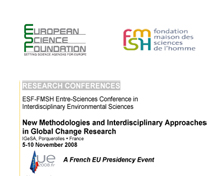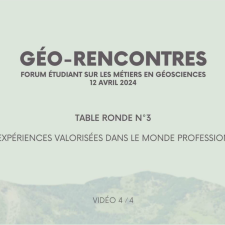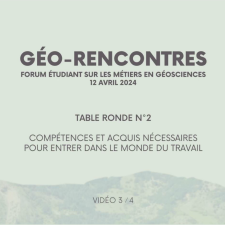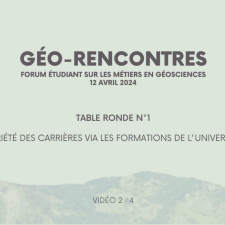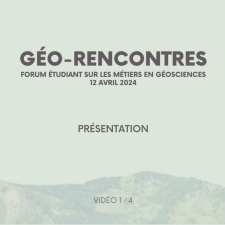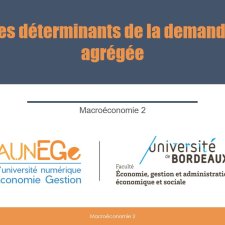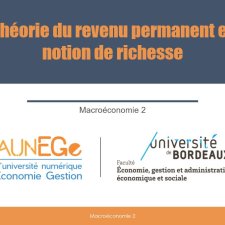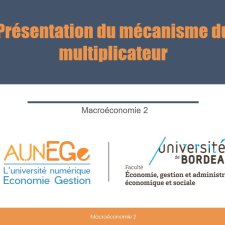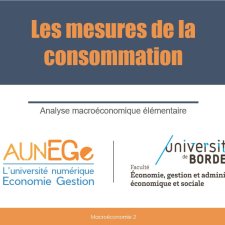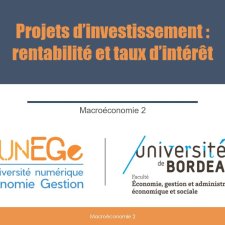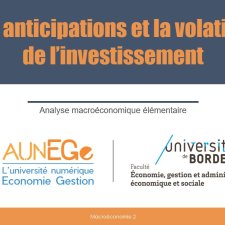Chapitres
Notice
Turning Hazards into Ressources? Climate Change, Floods and Coastal Wetlands in the Costa Brava (North-East Iberian Peninsula)
- document 1 document 2 document 3
- niveau 1 niveau 2 niveau 3
Descriptif
According to the IPCC Fourth Assessment, one of the most vulnerable areas in Europe are coastal zones. This is due to sea level rise combined with increased risks from storms. Coastal wetlands, in particular, are projected to be negatively affected by sea-level rise especially where they are constrained on their landward side, and lack sediment supply. Approximately 20 percent of existing coastal wetlands may disappear by 2080 because of the expansion of the sea. Mediterranean low-lying sedimentary coasts with highly diverse ecosystems appear to be the most vulnerable areas to this phenomenon. The 4th IPCC Report also warns about the increasing likelihood of extreme events such as floods. However, for coastal wetlands (as well as for other ecosystems) floods need not to be considered necessarily a hazard. Rather, they could be seen as an important natural process contributing to groundwater recharge, to the provision of sediment loads to the coastal zone, and, more generally, to the equilibrium between fresh and salt water that, among other factors, make this transition areas so ecologically productive. In this paper we want to present the case study of the “Aiguamolls de l’Empordà” natural park, located in the North of the Costa Brava, to illustrate the possible benefits of larger floods originating from climate change for coastal wetlands. However, for this benefits to materialize it is fundamental to improve adaptation to flooding through a new management philosophy that accepts the axiom of “living with floods” rather than the usual, policy of minimizing or eliminating the hazard though hydraulic control works. Through mechanisms such as land use control, the adaptation of the built environment to flooding and compensatory mechanisms such as insurance, security can be enhances and floods may play a very important role in redressing the effects of sea level rise.
Intervention / Responsable scientifique
Dans la même collection
-
Climate Models: learning from the Past Long-Term Climate Variability
JoussaumeSylvieProjections of future climate change rely on global climate models. Such models simulate the dynamics and physics of the coupled atmosphere-ocean system and move towards models of the full Earth
-
Data-Model Fusion Approach in Global Change Research: Recent Development and Future Challenges
PengChanghuiIt is increasingly recognized that global change research requires methods and strategies for combing process models and data in systematic ways. This is leading to research towards the application of
-
The Largest Lakes and reservoirs of Russia as a Priority Water Ressource for Society
LemeshkoNataliaGlobal change for the last 25 years drives to important changes in hydrometeorological regime in different regions, reflecting water resources change of the larges reservoirs and lakes of Russia and
-
The Economics of the Climate/Development of the Gordian Knot; Beyond a Sound Pessimism
HourcadeJean-CharlesWe will first suggest that costs of meeting ambitious climate targets capable to stabilize global warming below 2°C or 3°C temperature increase have been underestimated so far. The first reason is the
-
Debate
CallonecGaëlDupuisJohannThoronSylvieThe European Science Foundation (ESF) and the French Foundation of the Maison des Sciences de l’Homme (FMSH) (within the Entre-Sciences programme) have agreed to jointly develop a new conference
-
IPCC Working Group I and III
JoussaumeSylvieThe European Science Foundation (ESF) and the French Foundation of the Maison des Sciences de l’Homme (FMSH) (within the Entre-Sciences programme) have agreed to jointly develop a new conference
-
Global Climate Change: Past and Future
MannMichael E.My presentation will begin with a review of the now-solid evidence for a human influence on the climate of recent decades. Such evidence includes instrumental measurements available for the past two
-
Modelling Forced and Internal Climate Variability During the Last Millennium
GoosseHughesAt hemispheric scale, the surface temperature is strongly influenced by the 28 variations of the natural (solar and volcanic) and anthropogenic (land-use, sulphate aerosols, greenhouse gas
-
A Roadmap to Assess the Economic Cost of Climate Change with an Application to Hurricanes in the Un…
HallegatteStéphaneThis talk presents a methodological roadmap to assess macro-economic damages from climate change. To do so, it explores a single manifestation of climate change in a single location: an increase in
-
Industrial and Environmental Policies: Reciprocal Impacts
ChauvinDominiqueTotal as a key player of the Oil and Gas industry is providing answers to 25 environmental challenges. In that respect, it has already developed environmental objectives and policies. Its
-
The Intergovernmental Panel on Climate Change and the Challenges of Climate policy, Equity and Ethi…
SomervilleRichardThe 2007 Intergovernmental Panel on Climate Change (IPCC) report provides clear guidance for the greenhouse gas emissions reductions needed to limit global warming to specific targets such as 2 °C
-
The Costs of Strategic Adaptation in a Simple Conceptual of Climate Change
MillnerAntonyA simple theoretical model of the process of strategic adaptation to climate change is proposed. Climate change is represented by a non-stationary Markov process on the space of climate states, and
Sur le même thème
-
Géo-Rencontres 2024 / Les expériences valorisées dans le monde professionnel
LilloEmmaAraujoJulieHuartFlorianDubreuRomainBuquetDamienChazalLauraBorieMarianeForum sur les métiers en géosciences organisé par les étudiants du CMI Ingénierie Géologique et Civile, Université de Bordeaux, 12 avril 2024
-
Géo-Rencontres 2024 / Compétences et acquis nécessaires pour entrer dans le monde du travail
BrinonJulietteAmoleFili-FenuaPretouFrédéricCampetHugoLiébauxAlbinDe AlemeidaMarie-LouPoirierAymericDufrenoyAudreyForum sur les métiers en géosciences organisé par les étudiants du CMI Ingénierie Géologique et Civile, Université de Bordeaux, 12 avril 2024
-
Géo-Rencontres 2024 / Variété des carrières via les formations de l'université
InguimbertDianeLacazeRomaneLemaitreLaurieChazalLauraMontjeanPascalPoudevigneJacquesPortefaixFrédéricForum sur les métiers en géosciences organisé par les étudiants du CMI Ingénierie Géologique et Civile, Université de Bordeaux, 12 avril 2024
-
Géo-Rencontres 2024 / Présentation
LatasteJean-FrançoisLavieThéoForum sur les métiers en géosciences organisé par les étudiants du CMI Ingénierie Géologique et Civile, Université de Bordeaux, 12 avril 2024
-
Tokyo, plus grande « ville » au monde : aménager et gouverner la démesure
Languillon-AusselRaphaëlAvec ses quelques trente-cinq millions d’habitants, Tokyo est la « ville » la plus peuplée au monde, et l’une des métropoles les plus riches. Cette présentation vise à décrire, analyser et expliquer,
-
-
Les déterminants de la demande agrégée
Maveyraud-TricoireSamuelLes déterminants de la demande agrégée
-
La théorie du revenu permanent et la notion de richesse
Maveyraud-TricoireSamuelLa théorie du revenu permanent et la notion de richesse
-
Présentation du mécanisme du multiplicateur
Maveyraud-TricoireSamuelPrésentation du mécanisme du multiplicateur
-
-
Projet d'investissement : rentabilité et taux d'intérêt
Maveyraud-TricoireSamuelProjet d'investissement : rentabilité et taux d'intérêt
-
Les anticipations et la volatilité de l'investissement
Maveyraud-TricoireSamuelles anticipations et la volatilité de l'investissement


